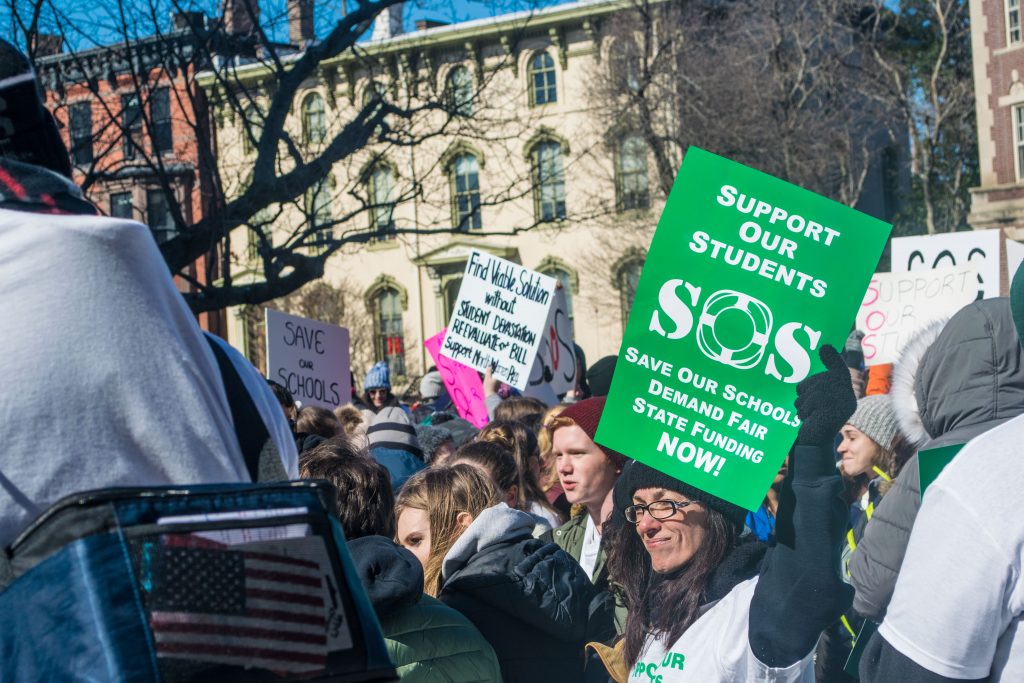
Toms River, Brick and students from 70 other districts across New Jersey attend a rally in Trenton over school funding cuts, March 5, 2019. (Photo: Daniel Nee)
What some saw as a fix for an underfunded school district was seen by others as the proverbial straw that would break the camel’s back: the ability to raise property taxes above the state’s 2 percent cap to compensate for Trenton’s $23 million funding cut for Toms River Regional schools.
Gov. Phil Murphy on Monday vetoed legislation that would have allowed the Board of Education to raise taxes above the cap, saying the legislature should consider raising the state’s so-called “millionaires’ tax” instead. Under a previous bill signed into law by Murphy known as S-2, Toms River is losing approximately $18 million in funding for its schools over a seven year period, and will already be forced to raise taxes to the 2 percent limit every year. But even with the maximum tax increases, the difference in funding will not be made up. The district is considering about 70 layoffs and cuts to co-curricular programs next school year, as well as the potential for other programs, such as full-day kindergarten, to be cut.
“Before middle-class property taxpayers have to again take it on the chin, we should be asking our wealthiest residents to pay their fair share through a millionaire’s tax,” said Murphy.
New Jersey has imposed a “millionaires’ tax” since 2004. It began as a tax of 8.97 percent and rose by 2009 to 10.75 percent as a levy against all incomes over $1 million. The rate has since dropped back to its original amount, but Murphy has long lobbied for increases back to 10.75 percent. The legislature, however, has been reticent to directly raise income taxes in what is already the highest-taxed state in the nation.
Murphy, in a statement released Monday, did not signal relief for districts like Toms River, instead doubling down on his support for S-2’s funding cuts by calling the measure a “plan to correct years of inequitable funding of New Jersey’s schools.”
Toms River, the state’s funding formula holds, does not pay enough in property taxes to support its school system. That very formula, however, is kept secret by the state under the reasoning that it is “proprietary,” and is the subject of a lawsuit that would make it public.
“I strongly believe that issues as important to New Jersey residents as property taxes and education funding warrant more deliberation than this bill was given,” said Murphy, who criticized its “fast track” from the legislature to his desk in 11 days. “State-level decision-makers should not delay difficult funding decisions until the end of the legislative session and fast track what amounts to a tax increase on the middle class without first exhausting all other options.”
Toms River’s next Board of Education meeting is set for Jan. 22 at 7:30 p.m. at Toms River High School North, 1245 Old Freehold Road.


Police, Fire & Courts
Thief Robs Toms River Restaurant, Pictured Walking Down Street Carrying Safe

Police, Fire & Courts
Intricate Nature of Toms River Jewelry Heist Revealed; TRPD Has Leads

Police, Fire & Courts
Thief Robs Toms River Restaurant, Pictured Walking Down Street Carrying Safe







